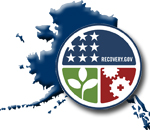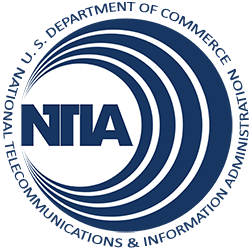Spearheading an expansive collaboration between groups including libraries, state agencies, colleges, healthcare networks, small businesses, and nonprofit foundations, the Alaska Department of Education & Early Development proposes to enhance public computer centers at more than 100 libraries across the state while launching an innovative free public videoconferencing network available to all Alaska public library users. Many populations in the surrounding community speak the indigenous languages of Alaska rather than English at home, so the project intends to hire bilingual support staff as part of its broader outreach to economically vulnerable populations, including Native Alaskans, other English-as-a-second-language residents, low-income individuals, and at-risk youth. The project also proposes to connect the libraries with limited terrestrial connectivity options to an affordable, sustainable satellite broadband network.
Alaska
 ';
';
| Grantee | Total Award | Type |
|---|---|---|
| Alaska Department of Education & Early Development | $5,351,378 | Public Computer Centers |
| Communication Service for the Deaf, Inc. | $14,988,657 | Sustainable Adoption |
| Connected Nation (Alaska) | $6,378,198 | Broadband Data & Development |
| University Corporation for Advanced Internet Development | $62,540,162 | Infrastructure |
| University of Alaska Fairbanks | $4,544,546 | Sustainable Adoption |
Broadband’s ability to expand educational and employment opportunities is especially meaningful for Americans who are deaf or hard of hearing, a community that faces unique challenges in education and that suffers from a rate of unemployment much higher than the national average. Communication Service for the Deaf, Inc. (CSD) intends to expand broadband adoption among people who are deaf and hard of hearing and provide them with online tools to more fully participate in the digital economy. The project proposes to employ a combination of discounted broadband service and specialized computers, technology training from an online state-of-the art support center customized to the community’s needs, public access to videophones at anchor institutions from coast to coast, and a nationwide outreach initiative. Thousands will gain online access to all the Internet has to offer, including sign language interpreters, captioned video services, and other content and functionalities designed especially to advance their educational, employment, and healthcare interests.
Project Components
State Broadband Capacity Building:
This project will provide support to the Alaska Broadband Task Force as it seeks to both formalize a strategic broadband plan for the state of Alaska and coordinate broadband activities across relevant agencies and organizations.
Technical Assistance:
This project will undertake research and benchmarking activities on broadband needs, usage, and barriers in local communities and also measure the impact of broadband implementation over time. Connected Nation will also provide training to the Alaska Regional Development Organizations (ARDORs) as they incorporate broadband planning into their ongoing responsibilities.
Application Usage and Development:
This project will conduct an assessment on the availability and quality of e-government applications. The final report will identify deficiencies and opportunities for improvement, particularly among remote and rural populations. The Alaska Broadband Task Force will use these findings to determine how to fund innovative e-government and web 2.0 applications via a sub-grant process that will make government services and data more readily available to Alaska’s communities.
Data Collection, Integration, and Validation:
This project was originally funded for broadband planning activities and two years of data collection. In September of 2010, this project was amended to extend data collection activities for an additional three years and to identify and implement best practices.
As part of a longstanding project to connect essential community anchor institutions across the country, and facilitate closer collaboration and long-term benefits for education, research, healthcare, public safety, and government services, the University Corporation for Advanced Internet Development (UCAID) proposes a comprehensive 50-state network benefitting approximately 121,000 community anchors. The project proposes a large-scale, public-private partnership to interconnect more than 30 existing research and education networks, creating a dedicated 100-200 Gbps nationwide fiber backbone with 3.2 terabits per second (TBps) total capacity that would enable advanced networking features such as IPv6 and video multicasting. The project plans to connect community anchors across all disciplines into virtual communities with shared goals and objectives, including colleges, universities, libraries, major veterans and other health care facilities, and public safety entities, with additional benefits to tribes, vulnerable populations, and government entities.
Alaska and its rural communities often lack crucial broadband-enabled services like distance learning, public safety, and telehealth. The University of Alaska Fairbanks, spearheading the Alaska Distance Education Consortium, proposes to promote broadband adoption across the state by delivering relevant content and services, driven largely by online learning for professional development, to remote villages including dozens of Native Alaskan villages that are most in need of improved service and adoption levels. The project also plans to train “Village Internet Agents” to respond to the hardware and software needs of residents.
